Are we preparing for heatwave impacts?

Given the intensity of the ongoing heatwave, we remain concerned about the health and wellbeing of the people. According to the Bangladesh Meteorological Department, a very severe heatwave is sweeping over Jashore and Chuadanga, while a severe one is occurring in Dhaka division, parts of Khulna division, and Rajshahi and Pabna districts. As per a report in this daily, Jashore overtook Chuadanga with the highest temperatures in the country, recorded at 42.6 degrees Celsius at 4:00pm on Saturday. Chuadanga, of course, was not far behind at 42.3 degrees Celsius recorded around the same time.
With scorching heat disrupting life all across the country, the Met issued a 72-hour nationwide heat alert, which has been extended till April 22. Meanwhile, all primary and secondary schools as well as National University-affiliated colleges are thankfully to remain closed till April 27 due to the heatwave. As we can imagine, those who must be outside for the sake of their livelihoods even during this intense weather, such as farmers, rickshaw pullers, traffic police, are getting the worst of it. And the impacts of the heatwave on people in general are already visible as more patients are reportedly going into hospitals with issues such as diarrhoea, headache, sore throat, shortness of breath, etc.
By now it is obvious that extreme weather events such as untimely heatwaves may become the new norm the world over. Therefore, it is essential that our policies and future planning be framed according to this new reality. Our cities in particular should be designed to provide plenty of shade to those working outside. We need to expand green spaces, cover heat-producing pavements and build roofs with green canopies. Unfortunately, however, we continue to see trees being mindlessly cut down all across the country, when it is trees that can provide us the best shelter from these events. The prime minister herself has repeatedly urged citizens to plant more trees to shield the country from the varied impacts of climate change. Yet, at the same time, we see the authorities failing to prevent the felling of trees, as well as fell trees themselves in the name of development.
We must keep in mind that the severe discomfort being faced by people due to the ongoing heatwave could have been better mitigated. Regions like Sylhet, for example, are facing a milder heatwave and experiencing rain daily because of having wider tree cover overall than, say, Dhaka. This should serve as an important lesson for the authorities, and bring an end to mindless environmental destruction that simply adds to the severity of extreme weather events and their overall damage. Moving forward, we must prepare for such weather conditions and plan our cities accordingly to shelter people from the heat, not bare them further to extreme elements. Additionally, rehydration facilities for people should be set up wherever possible.

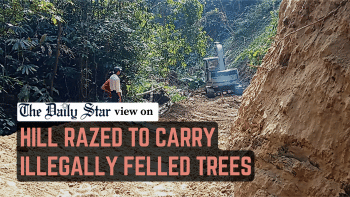
 For all latest news, follow The Daily Star's Google News channel.
For all latest news, follow The Daily Star's Google News channel. 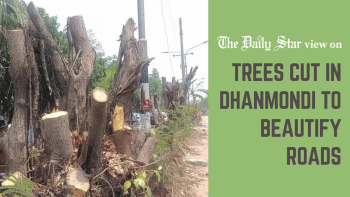



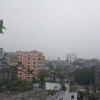
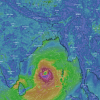
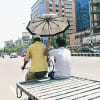
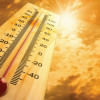


Comments